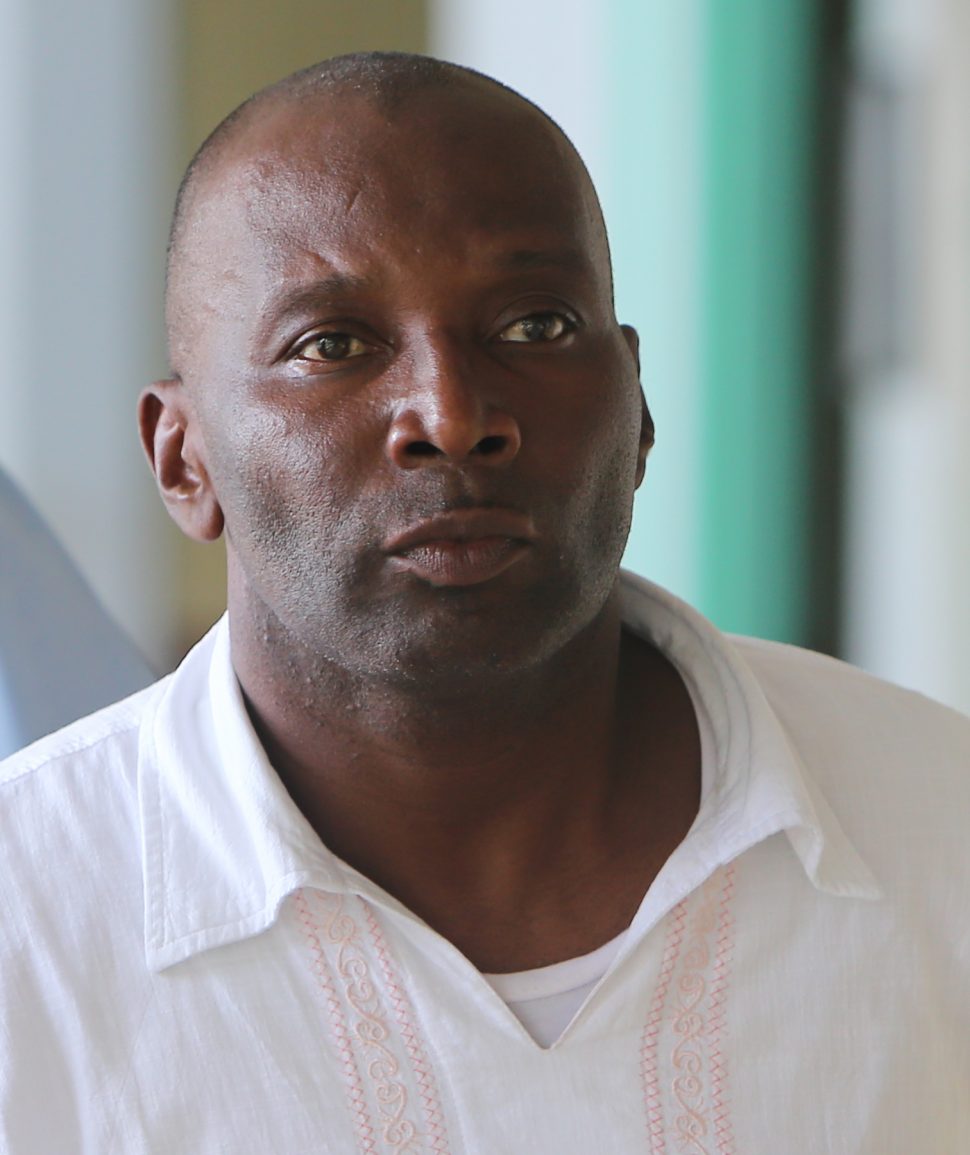Former police officer Milton Kewley was yesterday handed a life sentence for raping a 13-year-old boy.
Justice Priya Sewnarine-Beharry, who imposed the sentence, told the 50-year-old Kewley that his actions were “outrageous and abominable.”
The man was unanimously convicted by a 12-member jury on Monday at the conclusion of his trial at the Sexual Offences Court of the Georgetown High Court.
Recalling the evidence presented at trial, the judge said that no sooner had the teenager arrived to spend time at the convict’s home, he began kissing him on the neck after which he threw him onto a bed and proceeded to violate him.
The court heard that the young man became ashamed and told no one of what had happened to him but he eventually broke his silence when Kewley attempted to rape him on a second occasion.
The judge recalled from the evidence that the assault lasted for five minutes, and despite the teen’s repeated cries for Kewley to desist, as he was in pain, the man continued.
In passing sentence, the judge highlighted the aggravating factors of the case, while noting the survivor’s age, and the fact that the convict breached the position of trust reposed in him.
The judge also said she considered the nature and prevalence of the offence, the fact that the court would not condone such acts and the need for a strong message of deterrence to be sent to potential offenders.
Justice Sewnarine-Beharry said that she had also considered the words of the complainant, who told the court during the trial that the assault was as “vivid now as it was then.”
Against this backdrop, the judge said that the teen has had to live and continues to live with the psychological trauma of what was done to him.
With Kewley being a former police officer and HIV counsellor, the judge told him that he ought to have known better and should have been a guiding figure to the young man, as opposed to breaking his trust and violating him in the worst possible way.
She told the convict that his act of defiling the child was “outrageous and abominable.”
Apart from the fact that Kewley had no antecedents, the judge told him that she found no reason to mitigate his punishment, while pointing out that even in the face of a guilty verdict from the jury, he continued to maintain his innocence.
Justice Sewnarine-Beharry then imposed the life sentence on Kewley, ordering that he serves 45 years before being eligible for parole.
The court imposed 10 years for the teen’s age, 10 years for breach of a position of trust, 10 years for the psychological trauma caused to the child and 10 years for the violation he suffered. Additionally, five years were imposed for Kewley’s lack of remorse.
To Kewley’s claims of the child’s mother “having it out” for him over an argument they had, the judge pointed out that at no time did the convict make such complaints in his statements to investigators.
After his conviction on Monday, Kewley, a father of three, repeatedly proclaimed his innocence.
He was charged and convicted for the offence of rape of a child under 16 years, in that he sexually penetrated the boy on August 22nd, 2013.
His sentencing had, however, been adjourned to yesterday afternoon.
“I am innocent,” Kewley had said, after the verdict was announced. “The evidence is there that I’m innocent. The medical will show,” he declared.
Turning towards the jury box, he told the jury that it had made a mistake and that “the whole thing is a fabrication.”
He lamented that in life people make mistakes, and the jury had made one in convicting him.
Kewley added, “I am not attracted to men, or children.”
When asked on Monday, defence attorney Maxwell McKay had told the court that a probation report would not be necessary.
Meanwhile, Prosecutor Lisa Cave had told the court that there would be no presentation of a victim impact report.
Cave had asked the court to impose the maximum penalty on the convict, citing the seriousness and prevalence of the offence, added to the fact that he had violated a position of trust when he raped the young boy. She said that not only should a strong message of deterrence be sent to potential offenders, but to society at large that “no longer” will such acts be tolerated.










